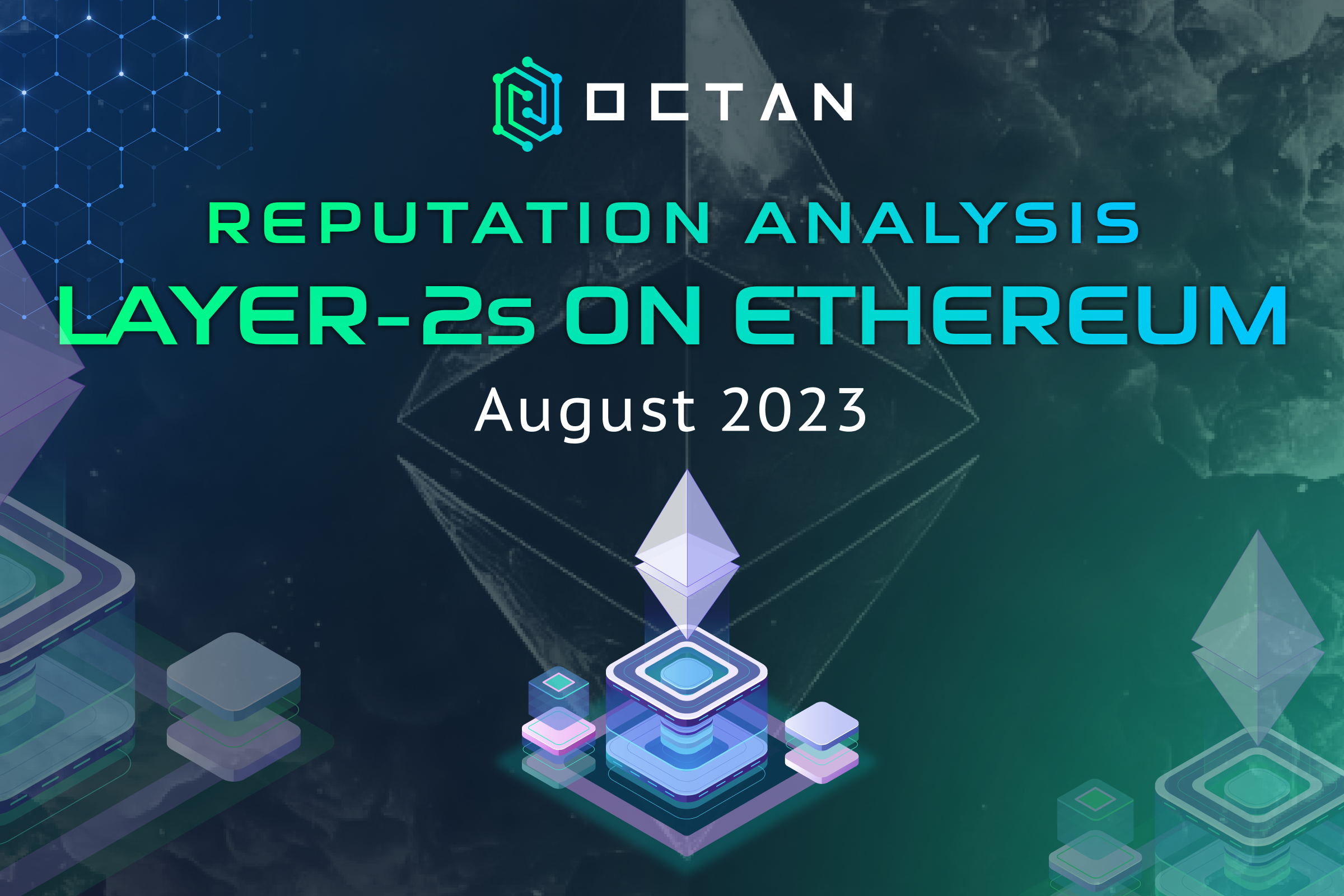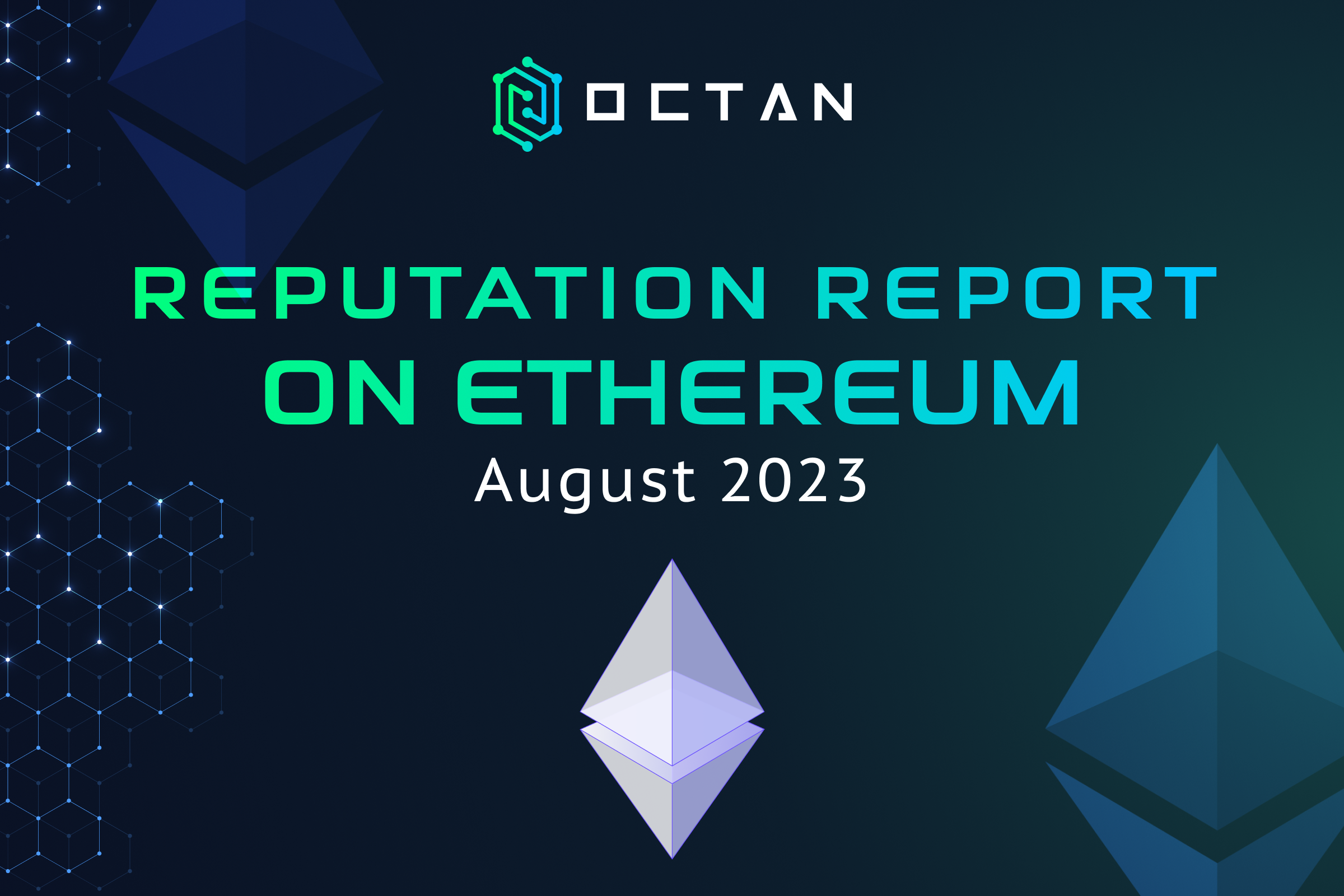The Reputation Ranking System (RRS) is a powerful analytics tool made by Octan Labs. By analyzing on-chain data with complex mathematical algorithms, the RRS can measure and track social insights in the dynamic and rapidly evolving Web3 ecosystem.
In this article, we will analyze the Token Holders as well as Contracts of GMX – one of the biggest perpetual DEXs (Decentralized Exchanges) at the moment. In this case study, Global Reputation Score (GRS), one among the three types of Reputation Score, will be used to draw conclusions on the behavior and characteristics of GMX Token Holders along with their Smart Contracts.
What is Reputation Ranking System (RRS)?
Inspired by Google’s PageRank, Octan Labs develops the Reputation Ranking System (RRS) to provide insights on the “reputation” of any entity in the Web3 space. Reputation Ranking System (RRS) uses multiple established PageRank algorithms and advanced mathematical ranking algorithms to calculate the Reputation Scores of users and other entities.
The RRS captures user activities and behaviors via on-chain records: transactions, contract interactions, transactional volume, and gas spent; providing a universal, comparative, and quantitative measurement of the reputation of accounts within communities and the entire space.
What is Reputation Score and Global Reputation Score (GRS)?
Defined by Octan Labs, Reputation Score is a metric to measure the trustworthiness and reliability of an account within a group of users, under certain criteria. The higher the Reputation Score, the more important the account is.
Basically, there are three types of Reputation Score:
- Global Reputation Score (GRS) quantitatively measures the importance and quality of an account in relation to others entirely on a blockchain.
- Category Reputation Score (CRS) is computed from on-chain transactions related to a specific category (i.e. DeFi, NFT, DAO, SocialFi, GameFi subspaces) entirely on a blockchain.
- Project/Dapp-based Reputation Score (PRS) quantitatively measures the importance and quality of accounts interacting with a specific project’s contracts on a certain blockchain. This is actually a projection of the entire chain into a (smallest-type) subspace formed by the Dapp’s contracts.

With the objective of analyzing GMX Token Holders & Contracts, we believe GRS to be the most suitable approach.
Analyzing GMX Token Holders & Contracts using the Reputation Ranking System
In our recent Arbitrum Global Reputation Score Report, we featured GMX as one of the two case studies on applying the RRS in practice. As one of the most sought-after DEXs on Arbitrum, GMX has contributed significantly to the adoption and expansion of this Layer-2 Scaling Solution.
As a result, featuring GMX in our Arbitrum report is a must. By utilizing the RRS to analyze their Token Holders & Contracts, we were able to discover whether GMX holds true importance within the Arbitrum ecosystem, as well as how impactful it truly is.

The average Global Reputation Score (GRS) of 289,903 GMX token holders is 0.474. The majority of these holders fall into the experienced partition, which is significantly higher than the average GRS of Arbitrum’s users (approximately 0.142).
This indicates that GMX’s holders exhibit higher quality in terms of their transaction volume, connections, and overall importance compared to the average users within the entire Arbitrum Ecosystem.


Now that we’ve analyzed GMX Token Holders, let’s take a look at the GRS of their contracts:

From the above table, we can see that:
- The Reputation Scores of GMX’s 11 most popular contracts are notably high, ranking among the top 200 contracts on Arbitrum with an average GRS of 1730.
- Each contract has an average of over 56,000 Unique Active Wallets (UAW) during the reported period.
- The average GRS per UAW for GMX’s protocol contracts is 0.846, just below the “Very High Partition ~12.3” and significantly higher than the “Experienced Partition ~0.5”.
Overall, it can be easily seen that the GMX protocol attracts a large number of high-quality and experienced users, setting it apart from the rest of the Arbitrum ecosystem.
Conclusion
After going through the case study of GMX thoroughly, we can see what the Reputation Ranking System produces in practice. With the help of the RRS, two main insights about GMX can be concluded as:
- About their Token Holders: They exhibit higher quality in terms of their transaction volume, connections, and overall importance compared to the average users within the entire Arbitrum Ecosystem.
- About their Contracts: The GRS & the average GRS per UAW of their contracts are notably high, indicating that GMX attracts a large number of high-quality and experienced users, setting it apart from the rest of the Arbitrum ecosystem.
In conclusion, the Reputation Ranking System is a crucial tool in the Web3 ecosystem, providing a reliable and sustainable means of measuring reputation. The more entities and participants join the ecosystem, the more critical reputation scoring and analysis become.
Octan Network’s RRS offers a powerful solution to these challenges, enabling users to make informed decisions and promoting transparency and accountability. As the Web3 ecosystem continues to evolve, the Reputation Ranking System will play a pivotal role in shaping its future. Stay tuned for updates and advancements from Octan’s official channels to learn more about this game-changing tool.


